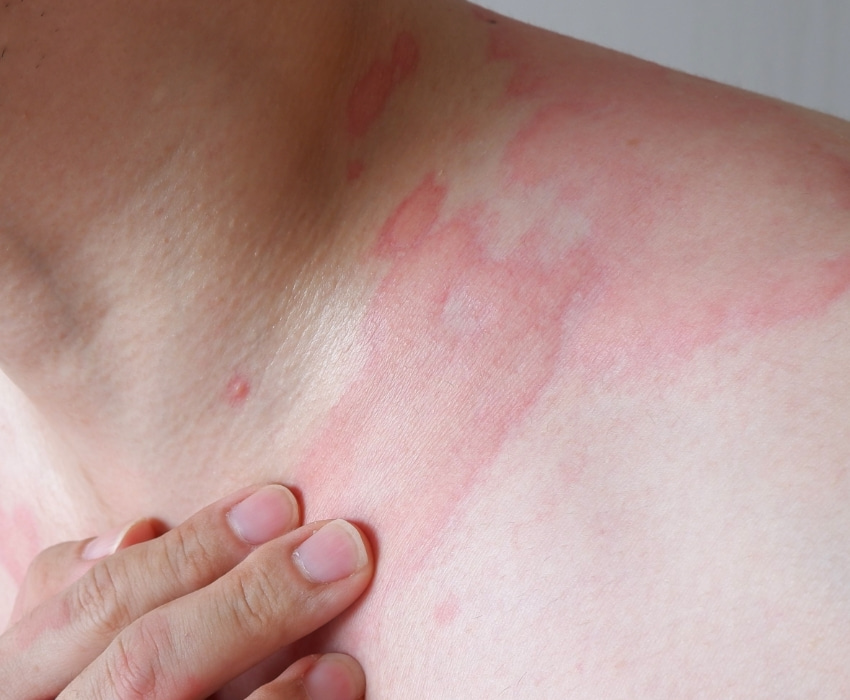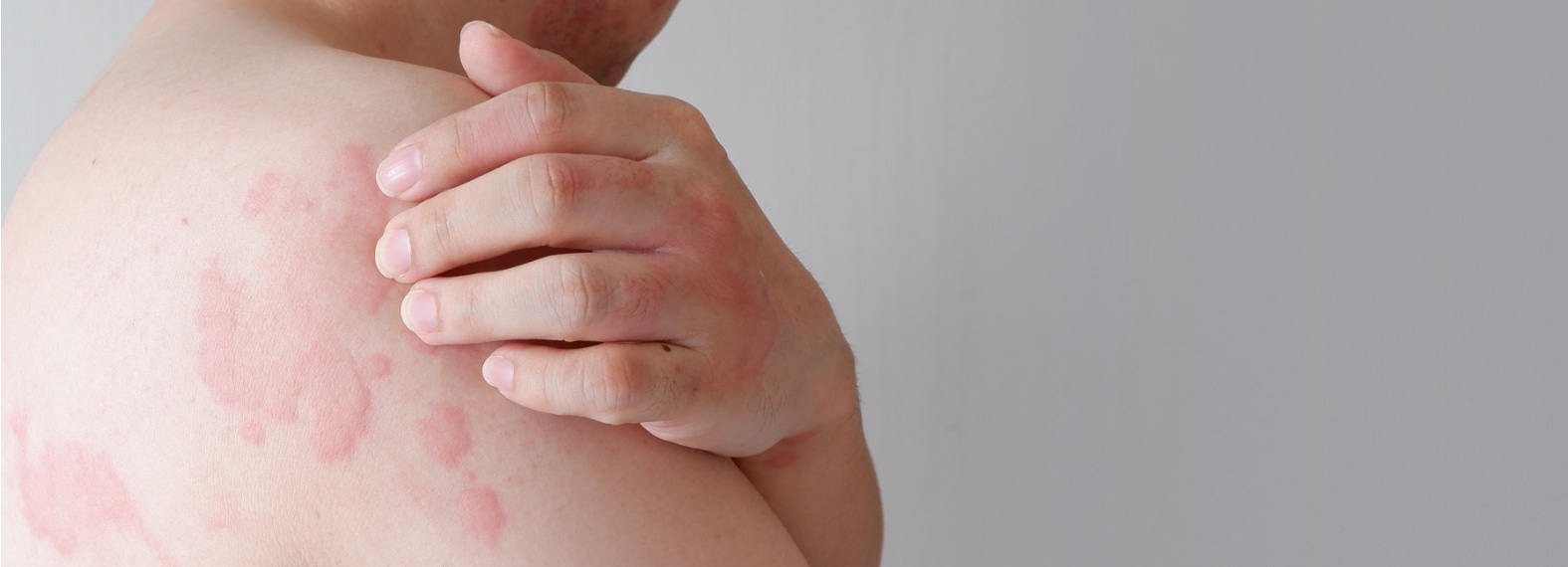Itchy, burning, red welts? These symptoms may indicate hives, also known as urticaria. This uncomfortable skin condition can appear suddenly, often triggered by specific factors. While identifying the causes can sometimes be challenging, modern treatment methods offer quick relief. At Swiss Derma Clinic, we take a holistic dermatological approach—not only alleviating your symptoms but also strengthening your skin for long-term health. This aligns perfectly with our Skin Longevity philosophy!
Our Therapeutic Approach:
Our primary focus is to relieve symptoms effectively and restore your skin’s health. Simultaneously, we conduct a thorough investigation to identify potential triggers.

